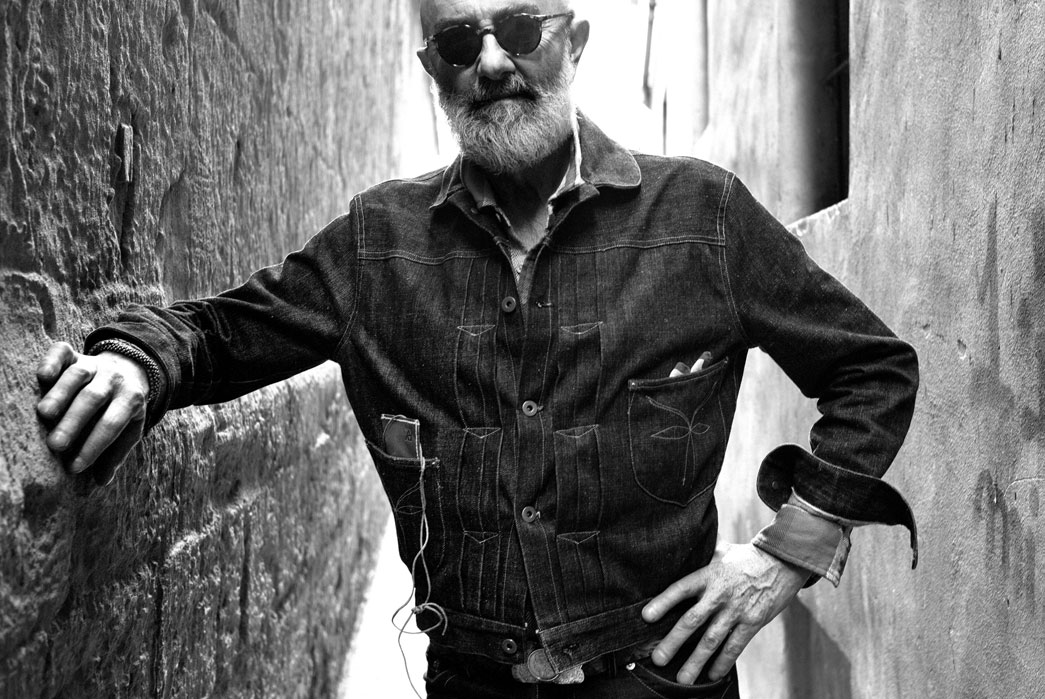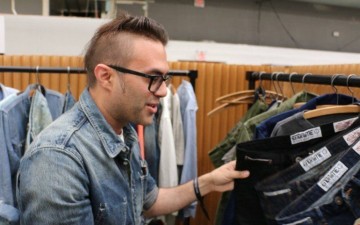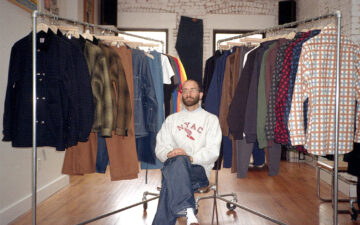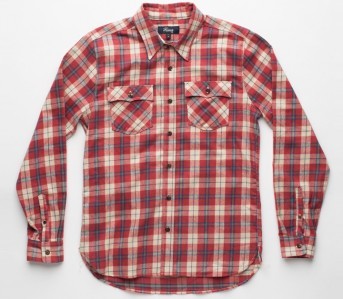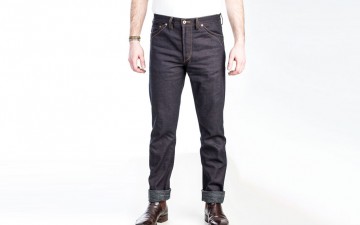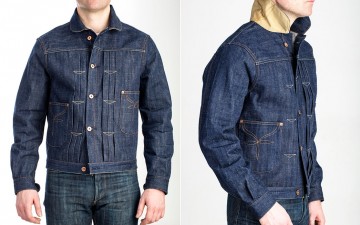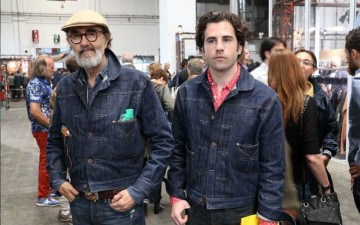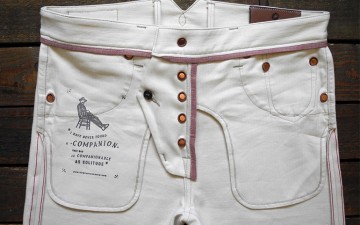The best artisans are born out of a passion that can cross decades, borders, and regime changes. The origins of Spain’s own JWJ brand has weathered all three and seems only become stronger for it.
The recent denim brand is the project of uncle and nephew Jose Luis and Jose Pepin Vives. The pair have had a lifelong love of denim (although one’s life has been a lot longer), which they’ve translated into a brand that’s combined their passion for early American workwear with their own culture of artisanal textiles and tailoring in Mallorca, Spain.
We had the chance to chat with the pair about their personal story and how it led them to create their dream of JWJ.
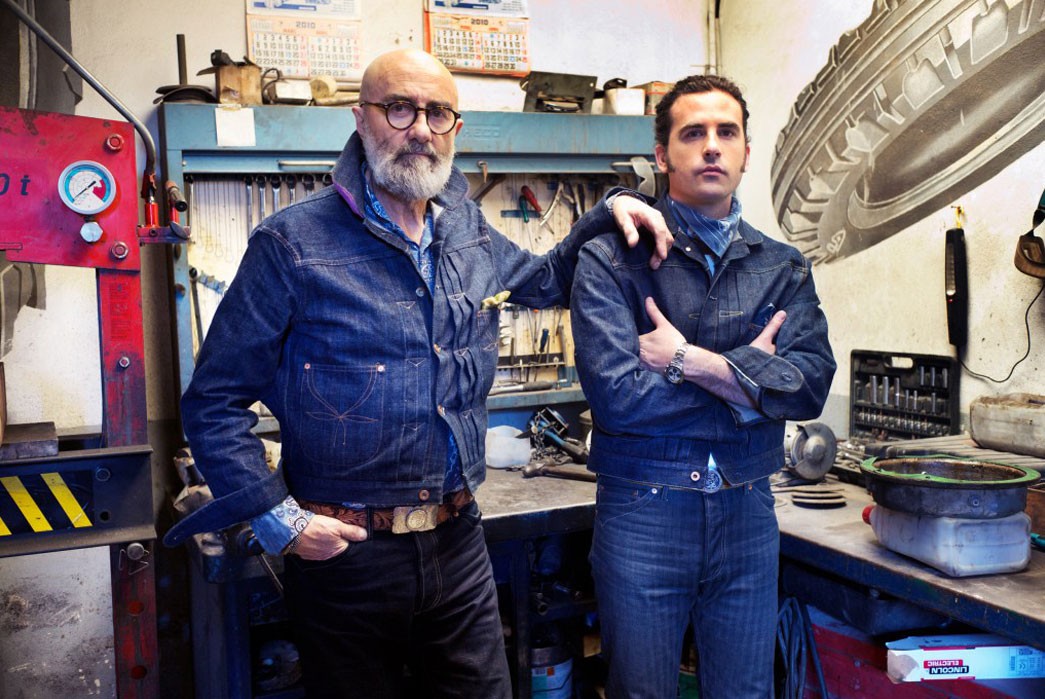
Heddels (David Shuck): Where did you first encounter denim growing up in Spain?
JWJ: We have always had our own denim culture in Spain. We’ve been wearing selvedge denim such as Levi’s, Momotaro, etc, and collecting vintage clothing for a long time. We’d been thinking for a while about creating a clothing collection based on workers’ apparel in nineteenth century Brazil.
The problems we faced in making and finding the right fabric, led us to the world of denim, which we already felt part of. Meeting our friend Iu Franquesa (of Companion Denim), whose inside-out knowledge of the industry was the verification that another world of denim was possible in Spain. As a result of this, we began to design our clothing always reinventing old designs and adapting them to our personal taste.
H: How does the generational difference between the two of you influence how you design? Do you have different appreciations at different stages in life?
JWJ: Actually, there are no big differences in our appreciations, as our sources originate in the past. Design inspired by historical roots follows a narrow path which is by no means less interesting because it makes you delve into the details. The cut and texture of the fabric, the precise stitching process, the production technique, etc.
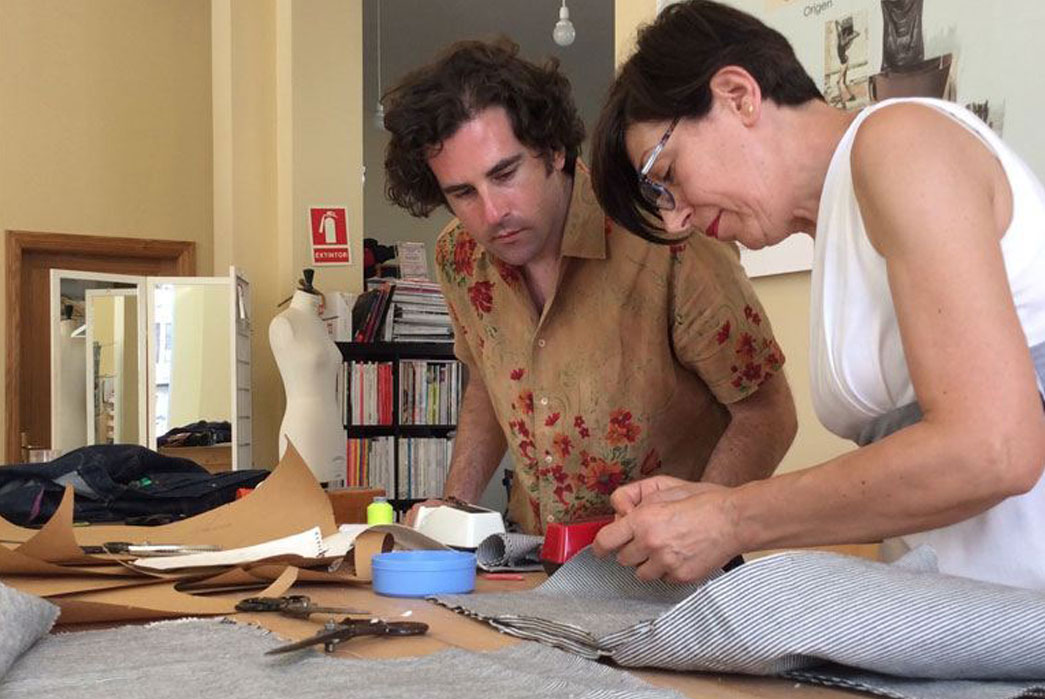
H: Does the Vives family have more involvement in clothing than just the two of you?
JWJ: We are the first in the family to get into clothing design and production, although all of us feel a great affinity with clothes.
H: Tell me more about the silk-blend ikat looms you have in Mallorca: Where did you first discover them? Was it difficult making them work again?
JWJ: This is an endangered jewel. There was a great tradition of looms in Mallorca, which was at its height during the second industrial revolution, in the middle of the nineteenth century. In fact, this preparation technique arrived in Mallorca in the eighteenth century from France and Italy, having been brought from India by way of the Silk Route.
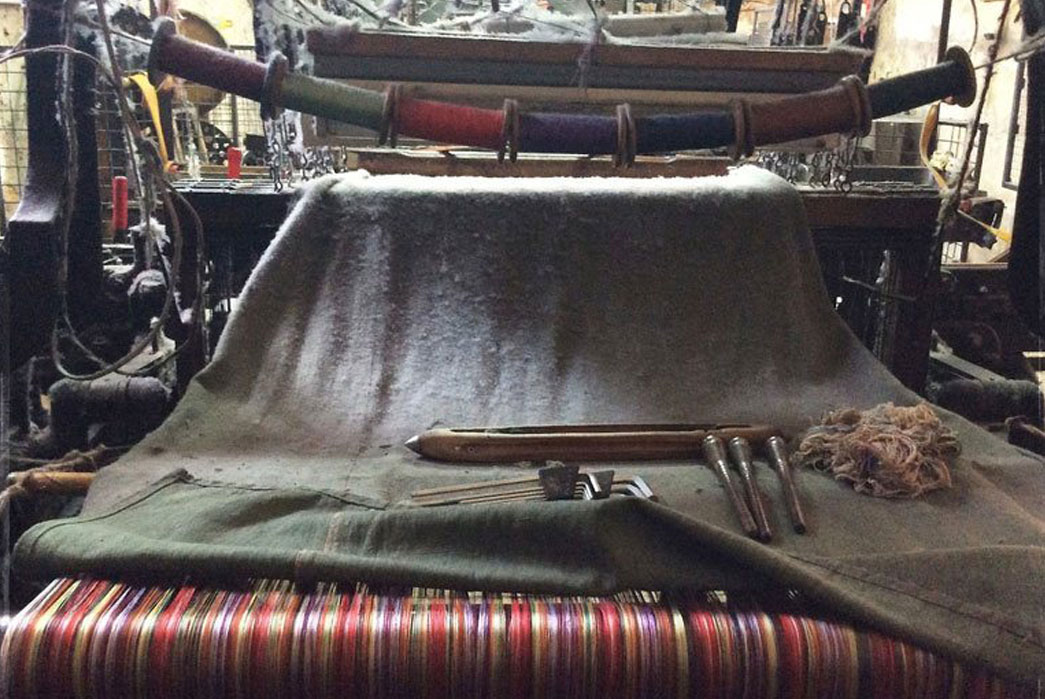
They are the last looms in Europe which maintain the tradition of the Ikat weave. However, the cloth that they produce is for interior design, not clothing. This cloth is usually made from cotton, but the linen/silk mix is of the highest quality. Watching how they produce this cloth, slowly on such narrow looms, is like a journey back in time.
H: Your products are distinctly old world, with details like cinch-backs, sewn pleats, and embroidery. What are your inspirations? What eras and places and cultures do you try to bring in to JWJ?
JWJ: Our inspiration comes from workers’ and sporting apparel in 19th and 20th century America and Europe. We strive to give a certain elegance to the cut. Our trousers are high rise. We never came across low rise trousers in our research, although they are more easily adapted to all fits.
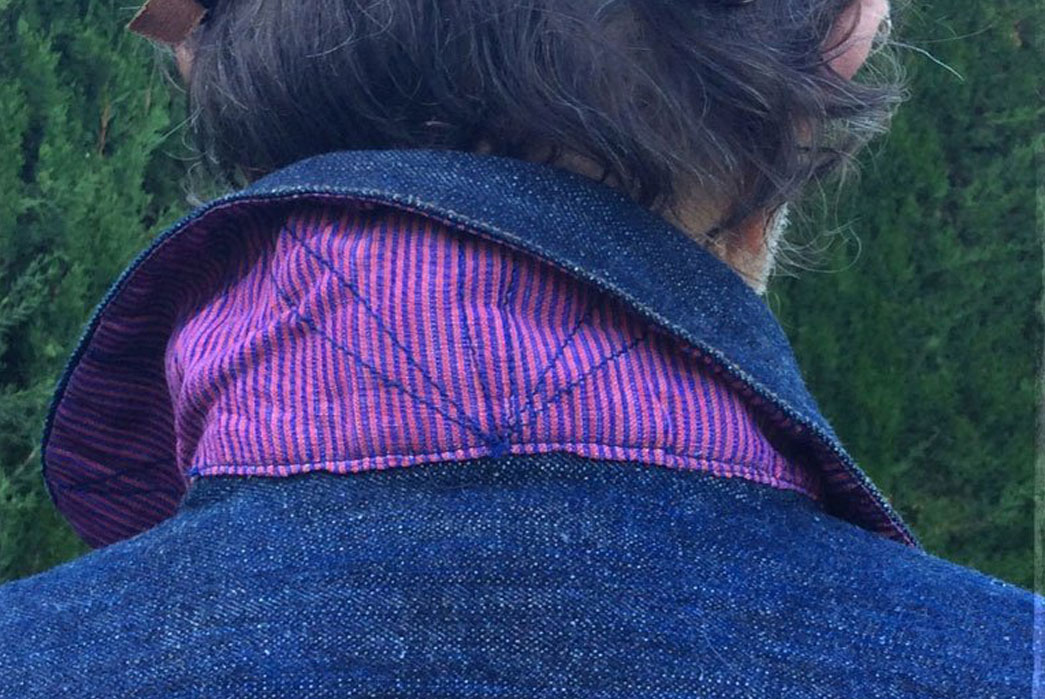
H: Tell me more about sourcing–I believe all of your denim comes from Nihon Menpu Mills, including their highly sought after Hemp blend denim. Why did you choose to source these fabrics and what does Japanese denim mean to you?
JWJ: Not all our denim is Nihon Menpu, but it’s the mill whose products we have most affinity with. It’s the mill that conveys the greatest unassuming charm and authenticity to the touch. We prefer cloth with more “life” and which looks less uniform. Japanese denim is a happy resurrection of the ancient spirit, which can only be carried out by a people with such great love for perfection and craft. I believe that our denim used in the El Patrón jacket is proof of this. Natural indigo mixture of natural fibres, etc, proves this point.
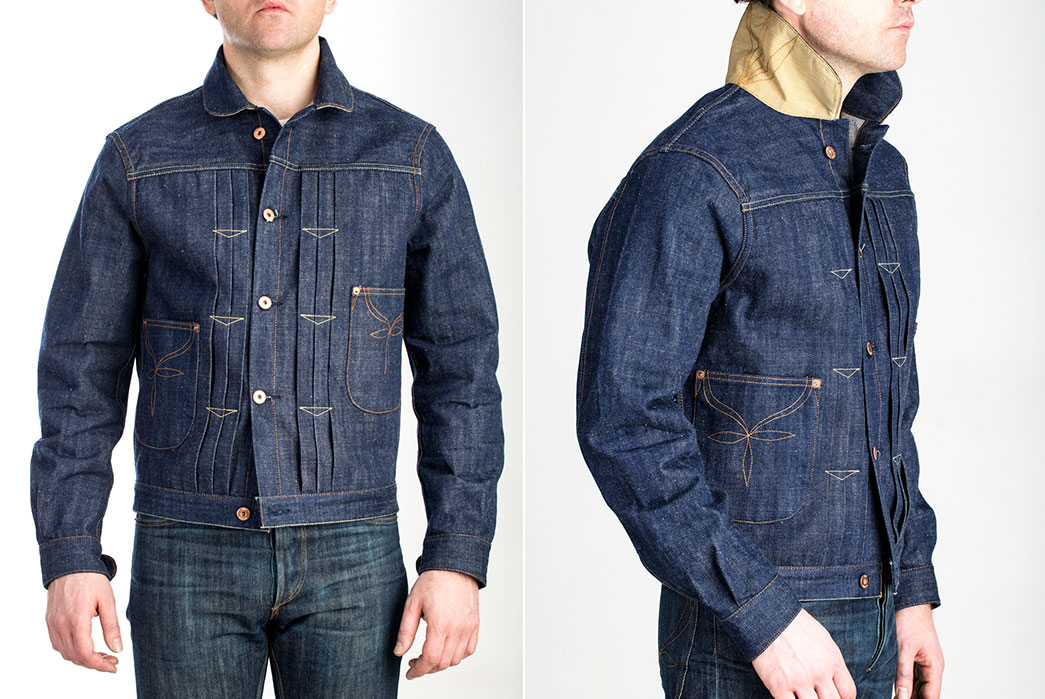
JWJ Brand’s El Patrón jacket using Sugar Cane denim.
Some denim is Italian but we always select it following our original criteria. Candiani and Berto, more crafted and exclusive, make a highly regarded selvedge denim.
H: What does JWJ the name mean? What does “Just Wear Jackets”/ “Just Wear Jeans” mean to you?
JWJ: JWJ is a mixture of our initials which coincide, a little play on the letters JV+JV=JWJ.
The rest came from a brainstorming session with a friend, but it reflects our daily reality, we wear jeans practically 100% of the time.
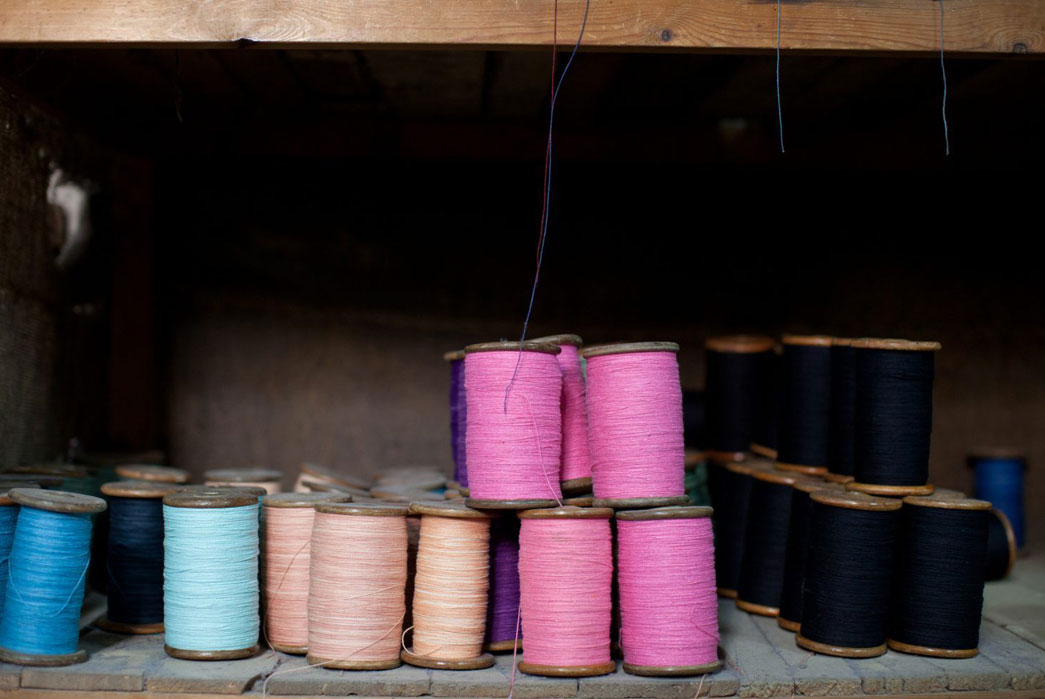
H: Who is the JWJ customer? Who are you trying to reach with your products?
JWJ: Our customer is a denim addict, who appreciates heritage design, which we always research. This customer also appreciates a carefully crafted product made with a selection of the best denim.
H: All of your products are currently made in Barcelona. Was it difficult to find a production facility and sewers that could make what you wanted in your home country? Why was it important for you to make your clothing in Spain?
JWJ: We spent months looking for a manufacturer who met the levels of perfection that we sought after (as far as possible). The small and precise stitching found on the curve of the pockets, for example, the lining of the garments and other details such as the thread and the hardware, are from our point of view, essential.
For us it’s important to create employment in our country, especially in the present economic situation. Barcelona is a city with a great textile tradition. We adhere to the principle of ethically produced products.
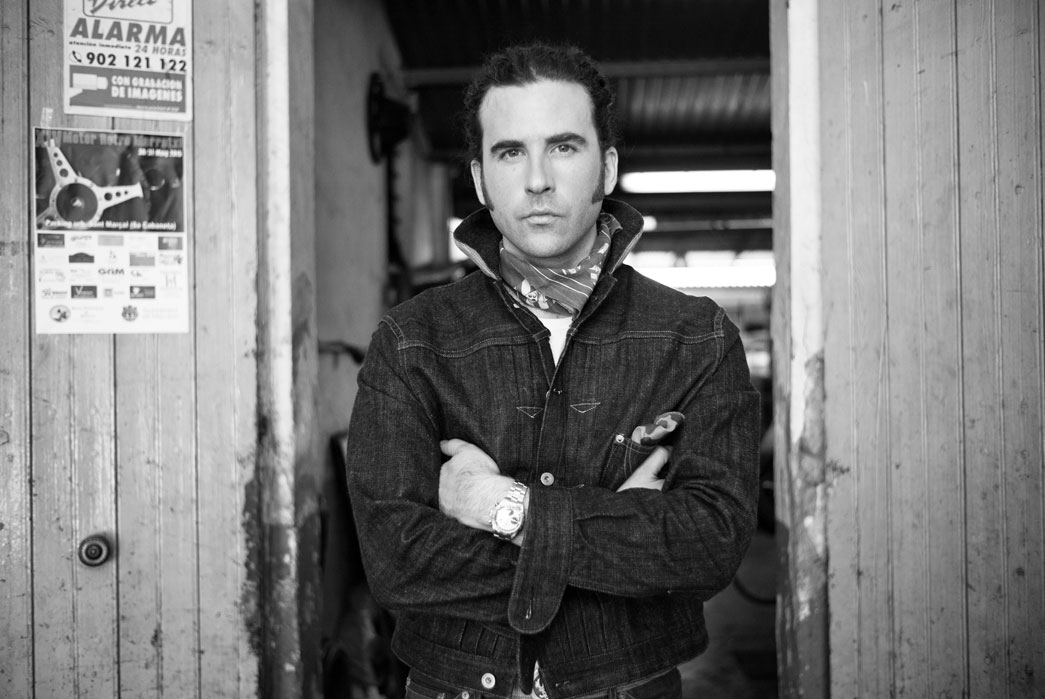
H: Do you see Spain as a place for future denim brands and artisans?
JWJ: Well, the seed is always ready to be sown. It depends whether it falls in soil readied by passion for denim.
H: Thank you for your time.
Find out more about JWJ via the brand’s website.

